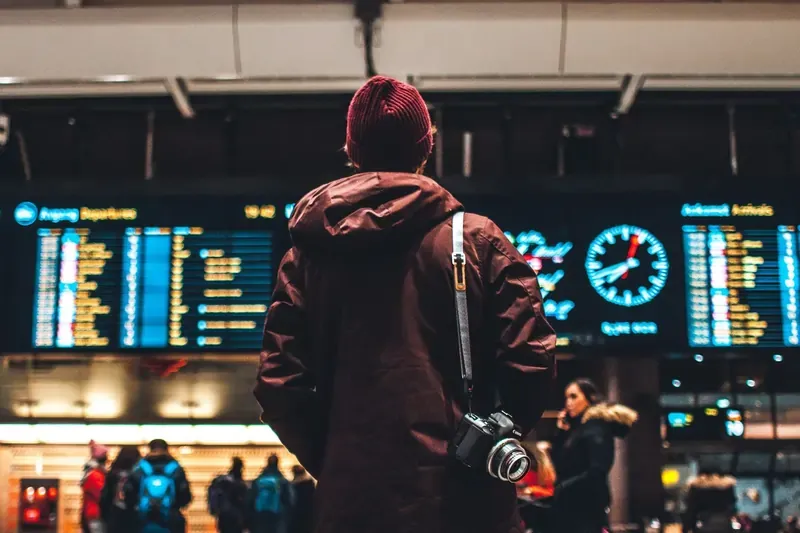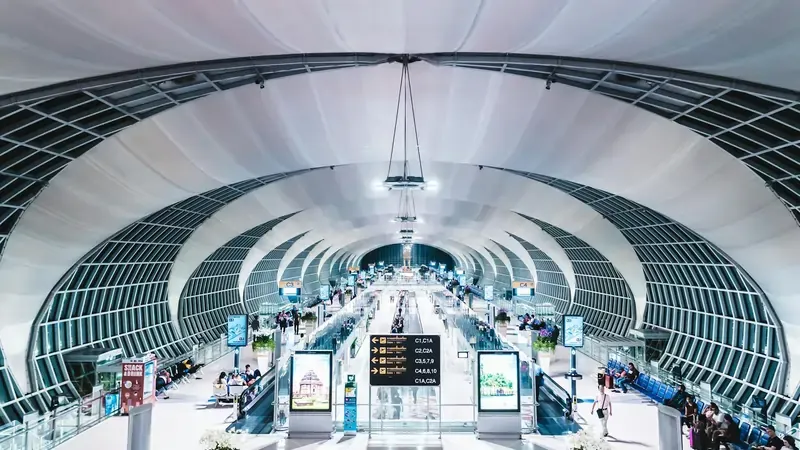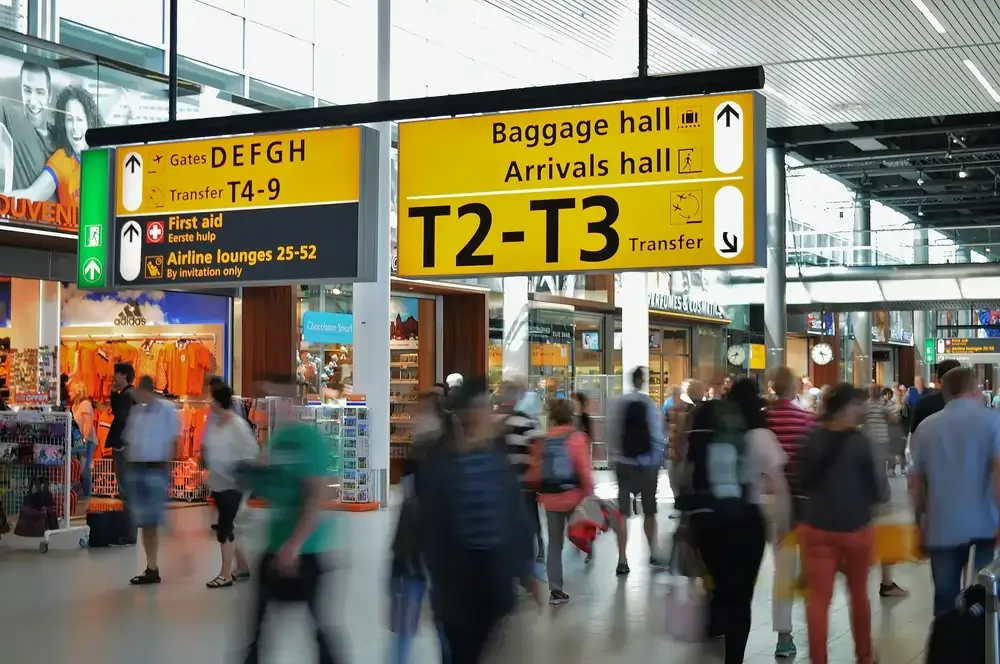travel hacks
How early do I really have to be at the airport for my flight?
Is 3 hours really required?
Whether you're a frequent flyer or someone who only boards a plane occasionally, one question always seems to crop up: "Do I really need to be at the airport so early?" If you are asking this question, it probably is because you don’t want to be spending hours in the airport doing nothing; but neither do you want to be rushing and praying hard you don’t miss your flight. So, how early do you really need to be at the airport?

Why Do Airlines Recommend Early Arrival?
Most airlines recommend that you arrive at the airport 2-3 hours before your flight, and it isn’t for no reason. Let’s take a look at some of the reasons behind this recommendation.
Security Screening
The most significant reason airports suggest you arrive early is security screening. With the increasing focus on security measures, this step can be unpredictable. Depending on your departure airport, the time of day, and the current security alert level, you might breeze through in 10 minutes, or you could spend over an hour in line.
In major airports, particularly hubs like LAX, JFK, or Heathrow, security lines can be extensive. For domestic flights, airlines often recommend arriving 1.5 to 2 hours before your flight, while international flights usually come with a suggested 3-hour window. However, these times are recommended to account for worst-case scenarios.
Check-in and Baggage Drop-off
If you're checking a bag, the early arrival rule applies even more. Some airlines, especially budget carriers, have strict cut-off times for checking luggage, often around 60 minutes before departure. The check-in and baggage drop-off queues could be long, especially during peak travel season. If you're late, your bag might not make it onto the plane, and neither will you.
Most major airlines allow online check-in up to 24 hours before your flight. If you've done this and only have carry-on luggage, you can save time by skipping the check-in counters altogether. But even if you've checked in online, it's still worth arriving early because you never know when technology might fail, or you might need to resolve an issue in person.
Boarding Time
Airlines also begin the boarding process earlier than some travelers might expect. Usually, boarding starts 30 to 45 minutes before departure, and the gate will close around 15 minutes before takeoff. Being late can cause undue stress and may result in you missing your flight, particularly on international flights, where documentation checks can take longer.
How Early Should You Really Arrive At The Airport?
So, do you really need to be at the airport as early as the guidelines suggest? Let's break it down by considering several factors.
1. Domestic vs. International Flights
For domestic flights, you might get away with arriving closer to the 1-hour mark, especially if you've checked in online and have no luggage to drop off. International flights, however, require more time due to customs, documentation checks, and longer security lines. In these cases, the 3-hour recommendation is usually justified.
2. Size of the Airport
Smaller regional airports tend to have shorter security lines, less crowding, and faster boarding times. In these cases, you can often arrive later than you would at a busy international airport, especially during off-peak hours. On the other hand, major hubs can have long security lines, distant gates, and large crowds to navigate, making early arrival more important.
3. Time of Travel
Peak travel times, such as early morning, late afternoon, weekend travel, or peak travel periods like summer or winter often see longer lines at check-in, baggage drop, and security. If your flight is scheduled during these times, it's better to stick to the recommended arrival time to avoid missing your flight. On the other hand, flights during off-peak hours, like late-night or mid-week flights, often have shorter wait times.
4. Airline and Airport Efficiency
Some airports and airlines are known for their efficiency, with quick-moving security lines and streamlined boarding procedures. If you’ve flown through a specific airport before and know it runs smoothly, you can cut down on your arrival time. Conversely, airports known for being congested or airlines with slower processes might require a more cautious approach. Events such as airport strikes or technical failures will also impact the amount of time you will need, so make sure to keep a look out for any planned or unplanned events that could impact the check-in and security processes.
5. Your Travel Style
Your personal travel style and tolerance for stress will play a role in how early you should arrive at the airport. If you're the type of person who prefers to be prepared for anything and avoid unnecessary stress, arriving early will give you peace of mind. On the other hand, if you thrive under pressure and prefer to maximize your time outside the airport, arriving closer to your flight time may work for you—just know the risks.
Is There a “Too Early” Time to Arrive?
While being early reduces the risk of missing your flight, is there a point where you can be too early? Arriving more than 4-5 hours ahead of time may not serve much of a purpose, especially since most airlines won’t allow you to check in that far in advance.
Many airports are equipped with restaurants, lounges, and shopping areas to keep you entertained while waiting. However, arriving too early can also mean more idle time spent at the airport. If you arrive several hours early, consider using an airport lounge to relax more comfortably, especially if you're a frequent traveler or on a long international flight. Be sure to check the opening hours of the airport lounges as not all of them are open 24 hours.
How to Maximize Your Airport Experience
If you do end up arriving early and have time to kill, here are a few ways to make the most of your waiting time:
- Relax in a Lounge: Many credit cards or frequent flyer programs offer access to airport lounges where you can relax, work, eat, or sleep before your flight.
- Explore the Terminal: Many airports feature art installations, unique shops, and even cultural exhibits. Take a stroll and explore the area.
- Shop Duty-Free: You can also take the chance to shop for duty-free goods and last minute souvenirs in the airport. But do take note of the opening hours of the shops as they do not always open 24 hours.
- Use Free Wi-Fi: If the airport offers free WiFi, you can connect to the airport’s free WiFi and catch up on emails, browse the internet, or download some shows for the flight.
Get a Nomad travel eSIM to stay connected on your next trip
No matter where your next adventure takes you, it is important to stay connected on your trip with a Nomad international travel eSIM.
Nomad offers affordable data plans in over 170 countries, and you can be sure to find one that is suitable for your travel needs. And if you will be traveling across multiple countries, there are also regional plans available so you can stay seamlessly connected as you hop between countries. Data plans are available from as low as $1.10/GB.
Add-ons are also available for Nomad’s eSIMs, so you do not need to worry about running out of data. If you notice that you are running low on data, simply purchase an add-on before your data pack runs out. The add-on data pack will be automatically activated when the base plan runs out, so you do not have to worry about having to install a new eSIM.
If you share your Nomad referral code with your friends, your friend will be able to enjoy $5 off their first purchase (only applicable for plans $10 and more). You will also be able to enjoy $5 off your next purchase (only applicable for plans $10 and more).



